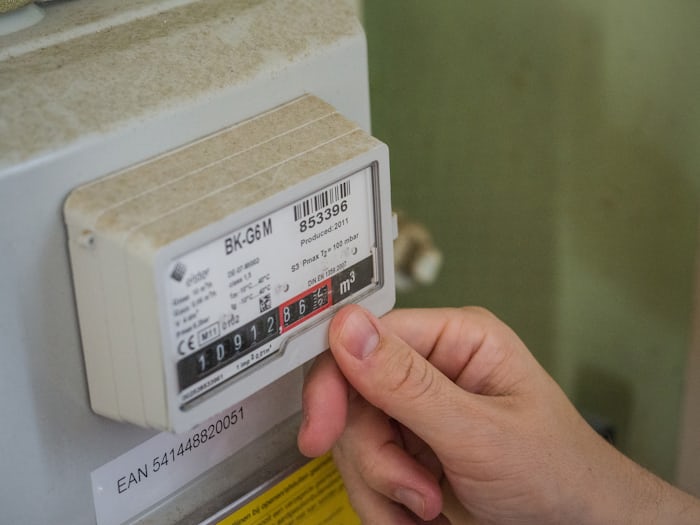Last updated Jun. 19, 2024 by Peter Jakes
Can Banks Take Your Money? A Comprehensive Analysis
The relationship between banks and their customers is a cornerstone of the modern financial system. Banks provide a secure place for individuals and businesses to store money, offer loans and credit, and facilitate a wide range of financial transactions. But despite this critical role, many people worry about the safety and security of their money once it is deposited in a bank. A recurrent question that arises is: Can banks take your money? To answer this, we need to delve into several aspects, including banking regulations, the concept of bank failures, debt collection, and asset seizures.
How Banks Handle Deposits
When you deposit money in a bank, you’re essentially lending that money to the institution. Banks then use these deposits to make loans and investments. The bank doesn’t keep your cash in a vault with your name on it. Instead, it keeps a fraction of the total deposits on reserve to facilitate day-to-day withdrawals and transactions. This system, known as fractional reserve banking, enables banks to generate profit through interest on loans while still providing liquidity to depositors.
Legal Safeguards and Regulations
To prevent banks from mishandling your money, there are numerous regulations and protections in place:
- FDIC Insurance: In the United States, the Federal Deposit Insurance Corporation (FDIC) insures deposits up to $250,000 per depositor for each account ownership category. If a bank fails, the FDIC ensures that depositors do not lose their funds up to the insured amount.
- Compliance and Oversight: Banks are subject to rigorous regulatory oversight by entities such as the Federal Reserve, the Office of the Comptroller of the Currency (OCC), and other state and federal agencies. These institutions set standards for liquidity, solvency, and financial practices to ensure banks operate soundly.
- Consumer Protection Laws: Various laws, like the Dodd-Frank Wall Street Reform and Consumer Protection Act, aim to protect consumers from unethical banking practices.
Bank Insolvency and Failure
In rare cases where a bank might become insolvent, it does not mean that the bank can simply take your money. Here’s what typically happens:
- Regulatory Intervention: Regulators like the FDIC will step in to manage the situation. They may seek to merge the faltering bank with a healthier institution.
- Depositor Payouts: If a bank fails, the FDIC aims to reimburse depositors quickly, usually within a matter of days.
- Asset Sale: The troubled bank’s assets may be liquidated or sold off to meet its obligations.
Debt Collection and Asset Seizure
Another context in which people worry about their money being taken relates to personal debts. Banks can indeed be compelled to restrict or hand over a customer’s funds under certain conditions:
- Court Orders: If you’ve been sued and lost, a court can issue a judgment allowing creditors to garnish your bank account or wages.
- IRS Liens: The Internal Revenue Service (IRS) can place a levy on your bank account to collect unpaid taxes.
- Loan Defaults: If you’ve defaulted on a loan, the bank might have the right to offset your deposit accounts to cover the loan amount, depending on the terms of your contract.
Unauthorized Activity
Instances of unauthorized activity, such as fraud or identity theft, bring up another concern about banks taking your money:
- Fraud Protections: Most banks offer substantial protections against unauthorized transactions. Laws like the Electronic Fund Transfer Act (EFTA) and various card network policies (Visa, Mastercard) ensure that victims of fraud are reimbursed, provided that they report the fraudulent activity promptly.
- Security Measures: Banks employ a variety of security measures to detect and prevent unauthorized access, such as two-factor authentication, encryption, and monitoring systems.
Can Banks Repossess Funds Without Consent?
Generally, a bank cannot take funds from your account without your explicit consent or direction unless specific legal conditions are met. However, several situations might legally compel the bank to limit or seize your funds:
- Loan Agreements: If you have a loan from the bank and you fall behind on your payments, the bank may have the right to take funds from your deposit accounts to cover the loan.
- Offsetting Debts: Banks often include clauses in their contracts that allow for the offset of funds. This means if you owe the bank money through a loan, the bank can apply your deposit funds toward that debt.
- Legal Seizures and Freezes: Under proper legal authority, such as a court order or government directive, banks can freeze or seize funds in your account.
Cryptocurrency and Non-Traditional Banking
The rise of cryptocurrencies and alternative banking options has added complexity to the conversation about banks taking your money. Cryptocurrencies offer a form of asset storage outside the traditional banking system, supposedly removing the risk of bank seizure. However, this comes with its own risks, such as market volatility and lack of regulatory oversight.
Preventive Measures
To protect your funds and ensure peace of mind, several actions can be taken:
- Diversification: Spread your assets across different financial institutions and types of investments.
- Monitoring: Regularly check your accounts for any unusual activity.
- Legal Awareness: Know your rights and contractual obligations with your bank.
- Emergency Fund: Maintain an emergency fund in a separate account to ensure liquidity in case of legal or financial complications.
Conclusion
While the notion of banks ‘taking’ your money often arises from misunderstandings or misinformation, it’s grounded in legitimate concerns about financial security and legal obligations. Overall, robust regulatory frameworks, insurance schemes, and consumer protection laws ensure that your deposited funds are secure under normal circumstances. That said, understanding the specific legal and contractual context of your financial arrangements can provide additional peace of mind.
FAQs
Q1. Can a bank take money from my account without my permission?
A1. Generally, no. Banks require consent or a legal mandate to take money from your account. However, in cases of loan defaults or under specific clauses of a contract, they might have the right to offset funds.
Q2. What happens if my bank fails?
A2. If your bank fails, the FDIC steps in to protect depositors. Deposits up to $250,000 per depositor, per account category, are insured and will be returned to you.
Q3. Can creditors take money from my bank account?
A3. Yes, if a court issues a judgment against you, creditors can garnish your wages or bank account to collect the debt.
Q4. What should I do if there’s unauthorized activity on my account?
A4. Contact your bank immediately to report the activity. Most banks have policies and protections in place to help recover funds lost through fraud or unauthorized transactions.
Q5. How can I protect my money from being seized?
A5. Stay current on any debts, diversify your assets, regularly monitor your accounts, and maintain an emergency fund in a separate account.
Q6. Can the IRS take money from my bank account?
A6. Yes, the IRS can place a levy on your account to collect unpaid taxes after notifying you and giving you an opportunity to resolve the debt.
Q7. Are cryptocurrencies safer than banks?
A7. Cryptocurrencies offer different risks and benefits compared to traditional banks. While they may be immune to certain types of seizures, they are also subject to high volatility and lack the consumer protections available in traditional banking.
Q8. Are there limits to how much money the FDIC insures?
A8. Yes, the FDIC insures deposits up to $250,000 per depositor, per insured bank, for each account ownership category.
Understanding these aspects can help you navigate the complexities of modern banking and feel more secure about the safety of your deposits.







